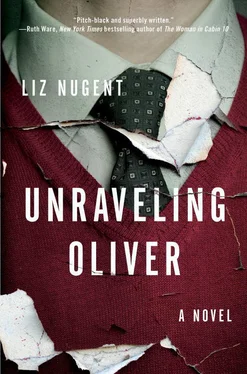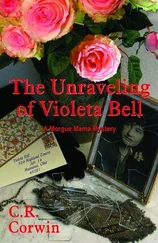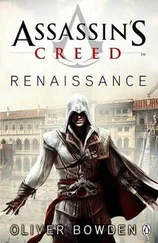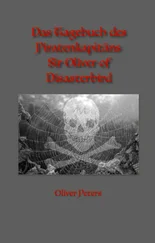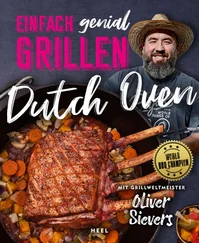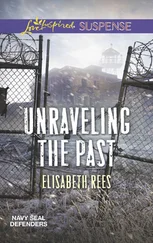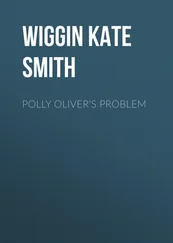It’s probably five years since I’ve laid eyes on Oliver Ryan, or Vincent Dax, as he is better known. I have kept an eye on his successes through the media, but the news about his savage behavior last November is a total surprise. They say that Alice might never recover.
I first met him when we were students in University College Dublin in 1971. We were both doing an arts degree and were in French and English together. Oliver was the type of boy that I liked to study: beautiful, in a poetic way. Obviously I was supposed to be sizing up the girls in my class, but there was something different about me.
Oliver mostly kept himself to himself, but he used to sit behind me in French lectures, and we would occasionally share notes. It was only at the end of our second year that I got to know him socially. With Oliver, you only got to scratch the surface. I don’t remember him ever talking about his family, for example. To this day, I don’t know whether he has brothers or sisters. With all the stuff about him in the news, it’s odd that even now so little has come out about his background. None of us were ever invited to his home, and he exuded a certain air that precluded questions about his private life. Oliver was a bit of a mystery, really—obviously an attractive quality, which, along with his striking looks and impeccable manners, gained him a lot of attention from quite a few young ladies, not least my little sister Laura.
Laura was the star of her year, academically gifted and stunningly beautiful in that wild West of Ireland way. I lurked in her shadow. Laura inherited our mother’s good looks, and Mum came from a long line of raven-haired beauties from West Cork, where once Spanish blood must have darkened the gene pool. I got my father’s County Laois looks. His family had been farmers for generations. Potato farmers, and if they say you are what you eat, then the male side of our family resembled nothing if not potatoes: pale with pockmarked skin and irregular features. Everyone loved Laura.
Oliver came home with Laura to my parents’ house for dinner a few times. My mother adored him to the extent that it might have put Laura off, but Laura was love struck, although she did a terrific job of hiding it for an incredibly long time before finally yielding to Oliver’s charms. Oliver and Laura were part of a gang that enjoyed trips to the pub or weekends away in our holiday home in Wicklow. She was really happy with him. I was jealous.
I have never understood what happened with Laura. Of course, she is no longer here to ask. Oliver was apparently as shocked as we were. We never got to the bottom of it. I often think about her now and what might have been. She and Oliver dated for only about five months, ending that awful summer we spent working the land in Bordeaux.
I can’t remember who came up with the idea first. It might have been Laura, actually. She knew someone who knew someone, and after the rigors of a year of study and exams, we were all looking for a chance to get out of Dublin and away from parental control. We were to plant a vineyard in France. Others would go off to canning factories in Germany, and a few went to building sites in London, but the notion of a vineyard struck our ears in a singular fashion. It would surely mean access to cheap alcohol. We didn’t really consider the work part of the deal until we got there. Oliver signed up immediately, much to Laura’s delight. The agreement was room and board and a fairly meager wage in exchange for our labor. It sounded easy, and we were able to convince our parents that the opportunity to study the French language and culture should be encouraged rather than dismissed.
We arrived in the last week of May. The initial couple of weeks were exhilarating. There were acres of land we were to prepare for planting, surrounded by a large peach orchard on one side and an olive grove on the other, set on a walled estate complete with château in a beautifully located valley, an hour’s drive from the city of Bordeaux.
Madame Véronique, a widow in her late thirties, ran the house and the estate. The only other members of the family were her six-year-old, a delightful little boy called Jean-Luc, and her elderly father, Monsieur d’Aigse. Monsieur d’Aigse and Jean-Luc were inseparable. They wandered around hand in hand, stooping to admire flowers or trees, the old man leaning down toward the boy, the little hand enclosed in his gnarled paw, which sometimes shook uncontrollably otherwise, whispering furtively and then exploding with laughter. It was never clear who was leading whom.
The d’Aigse family had owned the estate for several generations, but during the war it had been taken over by the Nazis, and the family had been ejected from the premises. The vineyard that had been there previously had fallen into ruin and the livelihood of the village destroyed. The château had been stripped of its valuables, but not its majesty. The rumor was that Monsieur d’Aigse had fought in the Resistance and had directed several missions of sabotage from the vast cellars underneath the terrace steps. I don’t know if that was true, but it was great to think that such exploits were being planned several floors below, while the jackbooted Nazis goose-stepped their way around the house above. There were other versions of the tale: apparently Monsieur had been horribly tortured at one stage when he had been caught smuggling a Jewish family out of the village, but it felt insensitive or inappropriate to ask about it. The war was still a living memory at that time, one that most would rather forget in that part of the world.
There were few servants as such, but there were several laborers living on the estate who seemed more than willing to help out with any job at hand. I got the impression that all the neighbors had good reason to be grateful to this noble family. This was a house of faded gentry, something we were well used to in Ireland at the time.
We lived in dormitory-style living quarters, tentlike structures erected for the season in a field below the terrace, overlooked by the grand Château d’Aigse. We would eat with the rest of the estate workers at the communal outdoor table. The local fieldhands were a lively bunch from the nearby village of Clochamps and surrounding areas.
There were also some South African workers there that summer. I had never talked to black people before, had hardly seen one in Ireland, but these boys didn’t engage with us at all and kept themselves to themselves. I tried talking to them in gestures of friendship, but they kept their eyes to the ground, as if afraid. I was fascinated, I must admit. We wondered why the black guys didn’t stay on the estate like the rest of us, like their white manager. I’m not sure, but I imagine they were even younger than us. Although I had attended a student rally for the Irish Antiapartheid Movement, I had never before encountered apartheid’s ugliness. I heard that they had been sent over to learn how to plant a vineyard and take back some plants; the climate in the Western Cape was similar, apparently. I’d love to have known more about them and their circumstances, but they had very little French and virtually no English, and like everything else in those days, it was rude to ask. Their white “manager” was an absolute prick called Joost. He had brought them to France to learn what he was too stupid and lazy to learn himself. He did no work and instead spent his day drinking and shouting instructions at them, physically beating them if they made a mistake. He tried to ingratiate himself with the rest of us by making crude jokes about his countrymen’s color and stupidity. France was a country still recovering from its own shame about sitting back and allowing the segregation and persecution of the Jews, and the locals were not going to let that happen again. We all protested to Madame, who eventually was forced to eject them from the estate.
Читать дальше
